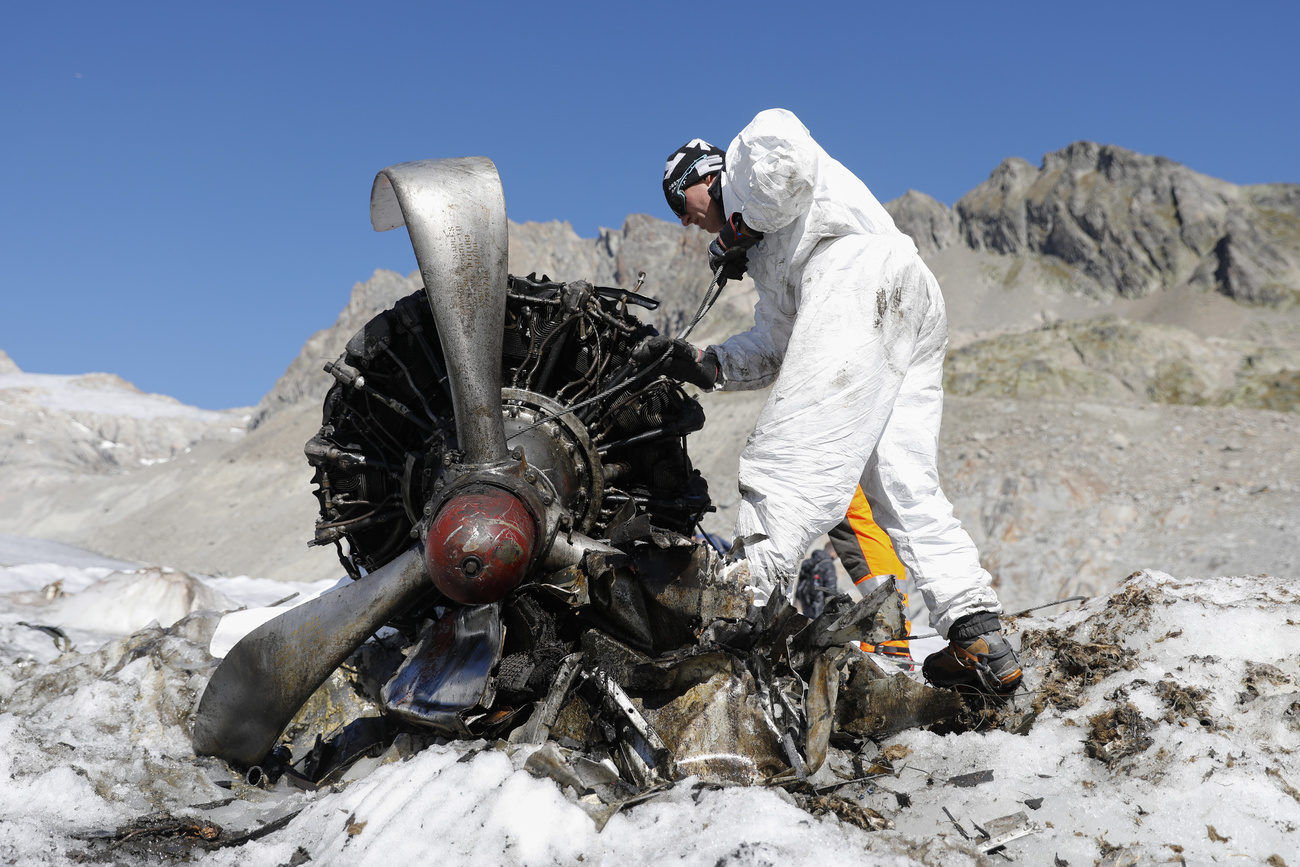
Melting glacier to release plane wreck sooner than thought

It won’t be long before the Swiss Alps release the remains of a US military plane that crash-landed over 70 years ago.
The “Dakota” crashed into the Gauli Glacier in the Bernese Oberland in November 1946. The pilot and all 11 passengers survived, but the plane was lost – though a few pieces of debris reappeared a few years ago.

More
Parts of US plane wreck pulled from glacier 70 years on
A team of researchers from the federal technology institute ETH Zurich and the University of Zurich – supported by Spiez Laboratory and the Swiss Army – have concluded that the glacier will soon release the largest part of the wreckage. They figured this out using radioactive material found in ice samples, the institute announced on Wednesday.
Half a tonne
In the 1950s and 1960s, American and Russian nuclear weapon tests left radioactive traces all over the world – also in glacier ice. This residue allows scientists to date the ice and reconstruct the flow of a glacier.
Using a computer model, the institute’s researchers calculated where modern-day Swiss soldiers should drill into the Gauli Glacier and extract ice dating back to the Cold War era. They removed nearly half a tonne of ice from a total of 200 locations.
“The core samples … clearly show the two main peaks of pollution by radioactive substances from 1957 and 1962, with contamination ending abruptly after 1963,” said Guillaume Jouvet of ETH Zurich and the University of Zurich.
Faster than expected
The data allowed the researchers to refine their flow model for the Gauli Glacier. According to the model, the ice masses are moving downhill faster than previously thought, as reported in The Cryosphere journal.
This means that glacier archaeologists will be able to examine most of the Dakota plane wreckage in the next few years.

In compliance with the JTI standards
More: SWI swissinfo.ch certified by the Journalism Trust Initiative





























You can find an overview of ongoing debates with our journalists here . Please join us!
If you want to start a conversation about a topic raised in this article or want to report factual errors, email us at english@swissinfo.ch.